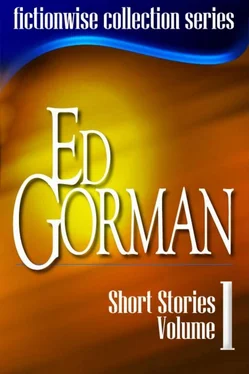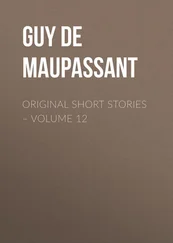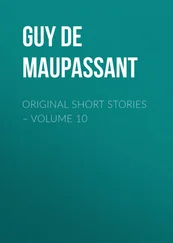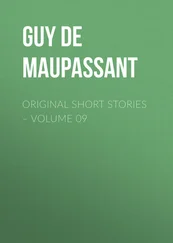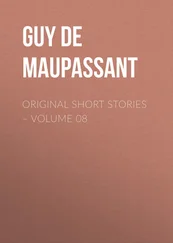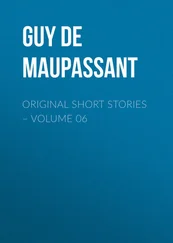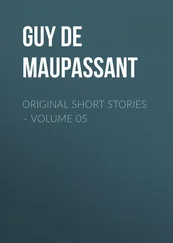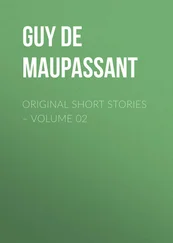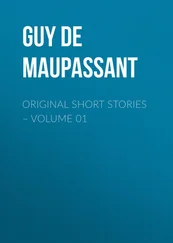Ed Gorman - Short Stories, Volume 1
Здесь есть возможность читать онлайн «Ed Gorman - Short Stories, Volume 1» весь текст электронной книги совершенно бесплатно (целиком полную версию без сокращений). В некоторых случаях можно слушать аудио, скачать через торрент в формате fb2 и присутствует краткое содержание. Год выпуска: 2003, ISBN: 2003, Издательство: Fictionwise.com, Жанр: Детектив, на английском языке. Описание произведения, (предисловие) а так же отзывы посетителей доступны на портале библиотеки ЛибКат.
- Название:Short Stories, Volume 1
- Автор:
- Издательство:Fictionwise.com
- Жанр:
- Год:2003
- ISBN:978-1-59062-568-2
- Рейтинг книги:4 / 5. Голосов: 1
-
Избранное:Добавить в избранное
- Отзывы:
-
Ваша оценка:
- 80
- 1
- 2
- 3
- 4
- 5
Short Stories, Volume 1: краткое содержание, описание и аннотация
Предлагаем к чтению аннотацию, описание, краткое содержание или предисловие (зависит от того, что написал сам автор книги «Short Stories, Volume 1»). Если вы не нашли необходимую информацию о книге — напишите в комментариях, мы постараемся отыскать её.
contains Fictionwise.com members favorites “En Famille” and “Favor and the Princess” and more excellent short mysteries.
Short Stories, Volume 1 — читать онлайн бесплатно полную книгу (весь текст) целиком
Ниже представлен текст книги, разбитый по страницам. Система сохранения места последней прочитанной страницы, позволяет с удобством читать онлайн бесплатно книгу «Short Stories, Volume 1», без необходимости каждый раз заново искать на чём Вы остановились. Поставьте закладку, и сможете в любой момент перейти на страницу, на которой закончили чтение.
Интервал:
Закладка:
“There’s number two,” Karen whispered.
This one I remembered. And despised. The six-three blond movie-star looks had grown only slightly older. His blue dinner jacket just seemed to enhance his air of malicious superiority. Larry Price. His wife, Sally, was still perfect, too, though you could see in the lacquered blond hair and maybe a hint of face-lift that she’d had to work at it a little harder. A year out of high school, at a bar that took teenage IDs checked by a guy who must have been legally blind, I’d gotten drunk and told Larry that he was essentially an asshole for beating up a friend of mine who hadn’t had a chance against him. I had the street boy’s secret belief that I could take anybody whose father was a surgeon and whose house included a swimming pool. I had hatred, bitterness and rage going, right? Well, Larry and I went out into the parking lot, ringed by a lot of drunken spectators, and before I got off a single punch, Larry hit me with a shot that stood me straight up, giving him a great opportunity to hit me again. He hit me three times before I found his face and sent him a shot hard enough to push him back for a time. Before we could go at it again, the guy who checked IDs got himself between us. He was madder than either Larry or me. He ended the fight by taking us both by the ears (he must have trained with nuns) and dragging us out to the curb and telling neither of us to come back.
“You remember the night you fought him?”
“Yeah.”
“You could have taken him, Dwyer. Those three punches he got in were just lucky.”
“Yeah, that was my impression, too. Lucky.”
She laughed. “I was afraid he was going to kill you.”
I was going to say something smart, but then a new group of people came up and we gushed through a little social dance of nostalgia and lies and self-justifications. We talked success (at high school reunions, everybody sounds like Amway representatives at a pep rally) and the old days (nobody seems to remember all of the kids who got treated like shit for reasons they had no control over) and didn’t so-and-so look great (usually this meant they’d managed to keep their toupees on straight) and introducing new spouses (we all had to explain what happened to our original mates; I said mine had been eaten by alligators in the Amazon, but nobody seemed to find that especially believable) and in the midst of all this, Karen tugged my sleeve and said, “There’s the third one.”
Him I recognized, too. David Haskins. He didn’t look any happier than he ever had. Parent trouble was always the explanation you got for his grief back in high school. His parents had been rich, truly so, his father an importer of some kind, and their arguments so violent that they were as eagerly discussed as who was or was not pregnant. Apparently David’s parents weren’t getting along any better today because although the features of his face were open and friendly enough, there was still the sense of some terrible secret stooping his shoulders and keeping his smiles to furtive wretched imitations. He was a paunchy balding little man who might have been a church usher with a sour stomach.
“The Duke of Earl” started up then and there was no way we were going to let that pass so we got out on the floor; but by now, of course, we both watched the three people she’d sent letters to. Her instructions had been to meet the anonymous letter writer at nine-thirty at Pierce Point. If they were going to be there on time, they’d be leaving soon.
“You think they’re going to go?”
“I doubt it, Karen.”
“You still don’t believe that’s what I heard them say that night?”
“It was a long time ago and you were drunk.”
“It’s a good thing I like you because otherwise you’d be a distinct pain in the ass.”
Which is when I saw all three of them go stand under one of the glowing red Exit signs and open a fire door that led to the parking lot.
“They’re going!” she said.
“Maybe they’re just having a cigarette.”
“You know better, Dwyer. You know better.”
Her car was in the lot on the opposite side of the gym.
“Well, it’s worth the drive even if they don’t show up.
Pierce Point should be nice tonight.”
She squeezed against me and said, “Thanks, Dwyer. Really.”
So we went and got her Volvo and went out to Pierce Point where twenty-five years ago a shy kid named Michael Brandon had fallen or been pushed to his death.
Apparently we were about to find out which.
The river road wound along a high wall of clay cliffs on the left and a wide expanse of water on the right. The spring night was impossibly beautiful, one of those moments so rich with sweet odor and even sweeter sight you wanted to take your clothes off and run around in some kind of crazed animal circles out of sheer joy.
“You still like jazz,” she said, nodding to the radio.
“I hope you didn’t mind my turning the station.”
“I’m kind of into country.”
“I didn’t get the impression you were listening.”
She looked over at me. “Actually, I wasn’t. I was thinking about you sending me all of those AA pamphlets.”
“It was arrogant and presumptuous and I apologize.”
“No, it wasn’t. It was sweet and I appreciate it.”
The rest of the ride, I leaned my head back and smelled flowers and grass and river water and watched moonglow through the elms and oaks and birches of this new spring. There was a Dakota Staton song, “Street of Dreams,” and I wondered as always where she was and what she was doing, she’d been so fine, maybe the most unappreciated jazz singer of the entire fifties.
Then we were going up a long, twisting gravel road. We pulled out next to a big park pavilion and got out and stood in the wet grass, and she came over and slid her arm around my waist and sort of hugged me in a half-serious way. “This is probably crazy, isn’t it?”
I sort of hugged her back in a half-serious way. “Yeah, but it’s a nice night for a walk so what the hell.”
“You ready?”
“Yep.”
“Let’s go then.”
So we went up the hill to the Point itself, and first we looked out at the far side of the river where white birches glowed in the gloom and where beyond you could see the horseshoe shape of the city lights. Then we looked down, straight down the drop of two hundred feet, to the road where Michael Brandon had died.
When I heard the car starting up the road to the east, I said, “Let’s get in those bushes over there.”
A thick line of shrubs and second-growth timber would give us a place to hide, to watch them.
By the time we were in place, ducked down behind a wide elm and a mulberry bush, a new yellow Mercedes sedan swung into sight and stopped several yards from the edge of the Point.
A car radio played loud in the night. A Top 40 song. Three men got out. Dignified Forester, matinee-idol Price, anxiety-tight Haskins.
Forester leaned back into the car and snapped the radio off. But he left the headlights on. Forester and Price each had cans of beer. Haskins bit his nails.
They looked around in the gloom. The headlights made the darkness beyond seem much darker and the grass in its illumination much greener. Price said harshly, “I told you this was just some kind of goddamn prank. Nobody knows squat.”
“He’s right. He’s probably right,” Haskins said to Forester.
Obviously he was hoping that was the case.
Forester said, “If somebody didn’t know something, we would never have gotten those letters.”
She moved then and I hadn’t expected her to move at all. I’d been under the impression we would just sit there and listen and let them ramble and maybe in so doing reveal something useful.
Читать дальшеИнтервал:
Закладка:
Похожие книги на «Short Stories, Volume 1»
Представляем Вашему вниманию похожие книги на «Short Stories, Volume 1» списком для выбора. Мы отобрали схожую по названию и смыслу литературу в надежде предоставить читателям больше вариантов отыскать новые, интересные, ещё непрочитанные произведения.
Обсуждение, отзывы о книге «Short Stories, Volume 1» и просто собственные мнения читателей. Оставьте ваши комментарии, напишите, что Вы думаете о произведении, его смысле или главных героях. Укажите что конкретно понравилось, а что нет, и почему Вы так считаете.
